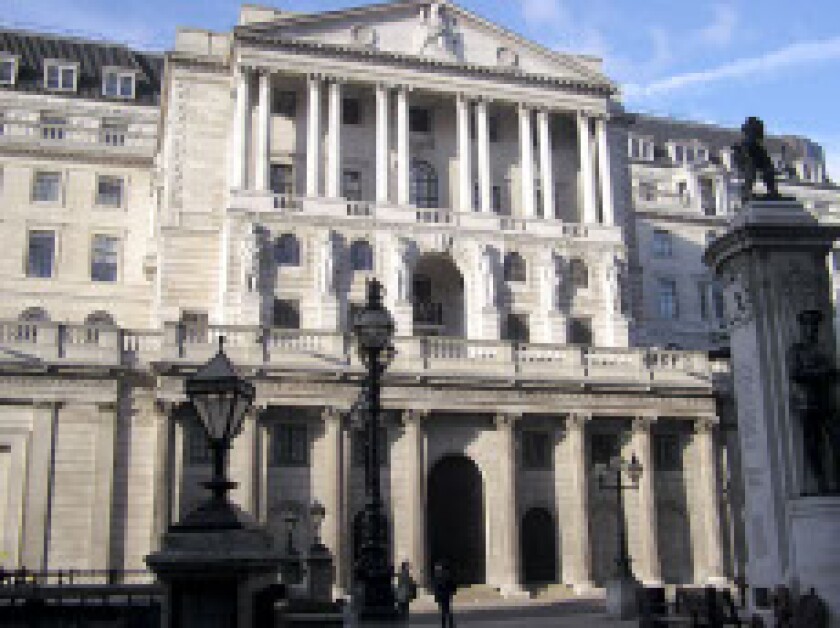Tom Stoppard’s philosophical spoof on Hamlet, Rosencrantz and Guildenstern are Dead, opens with one of the titular characters nearing an existential crisis caused by having flipped a coin 85 times, resulting in an unrealistic 85 heads outcomes. It is an unlikely series of results that further portends the fate laid out for the duo, already implied in the title.
In contrast, the Bank of England’s new stress test platform is all tails.
The new template for testing UK banks’ health is a mosaic of improbable economic conditions — tail risks — unlikely events, albeit ones that have effects that are disproportionate to their likelihood.
Despite this, it feels like a very accurate depiction of what many fear could very well happen if the eurozone’s recovery doesn’t gain traction, emerging markets go haywire and China’s economy experiences a hard landing. You can't help but get a bad, ominous feeling when reading it.
The Bank’s Financial Policy Committee went to lengths to make it clear that the severe scenario it proposed this week doesn’t represent an expected, or even a likely, scenario. But each of its aspects — prolonged deflation in Europe, a strong dollar shaking up emerging markets and the unsustainability of rapid growth in China — seem like familiar worries.
And yet, something important is missing.
As most investors in bank debt and equity will tell you, one of the biggest risks to the UK banking sector is fines stemming from litigation and regulatory misconduct.
The post-crisis era has no shortage of regulators, each as hungry as ever for their slice of fines and settlements. At least four countries have launched investigations into HSBC’s alleged abuse of the Swiss banking system. BNP Paribas’ pursuit by six state and national US entities led them to an $8.97bn settlement and a plea of guilty to violating US sanctions.
It’s not just investors who think banks are in for more punishing fines. In a poll of DCM heads at 18 of the top 25 investment banks conducted earlier this year by GlobalCapital, senior officials said they expect the most disruptive regulation for the business in 2015 to stem from conduct regulation.
Many say the fines are only likely to get bigger in the future. It isn’t just that there will be a welter of new regulations to comply with, but also that there is no guarantee that regulators won’t use new regulations to fine banks retrospectively for behaviour that, at the time of occurrence, may very well have not seemed worrisome.
Many banks are setting up their own internal evaluations of the risks litigation poses to their balance sheets, said David Allen, head of litigation at law firm Mayer Brown.
"Litigation and regulatory risk are high on the agenda of banks' risk management strategies, and we will see more resource dedicated to compliance functions as a result,” he said.
The BoE’s stress tests may be a confluence of tail risks which would be as likely to occur as the outcome of poor Rosencrantz’s ominous game of heads or tails, but there’s one big fat risk it just doesn’t take into account: that which banks pose to themselves.

